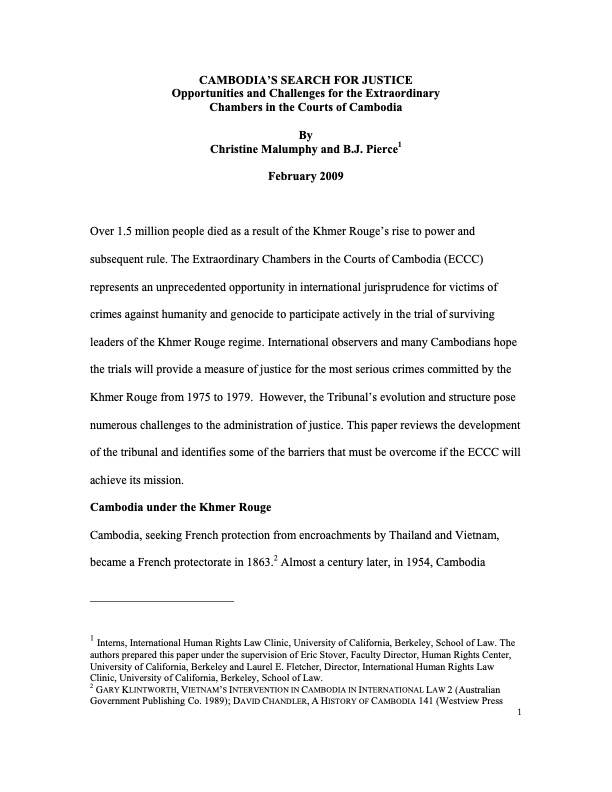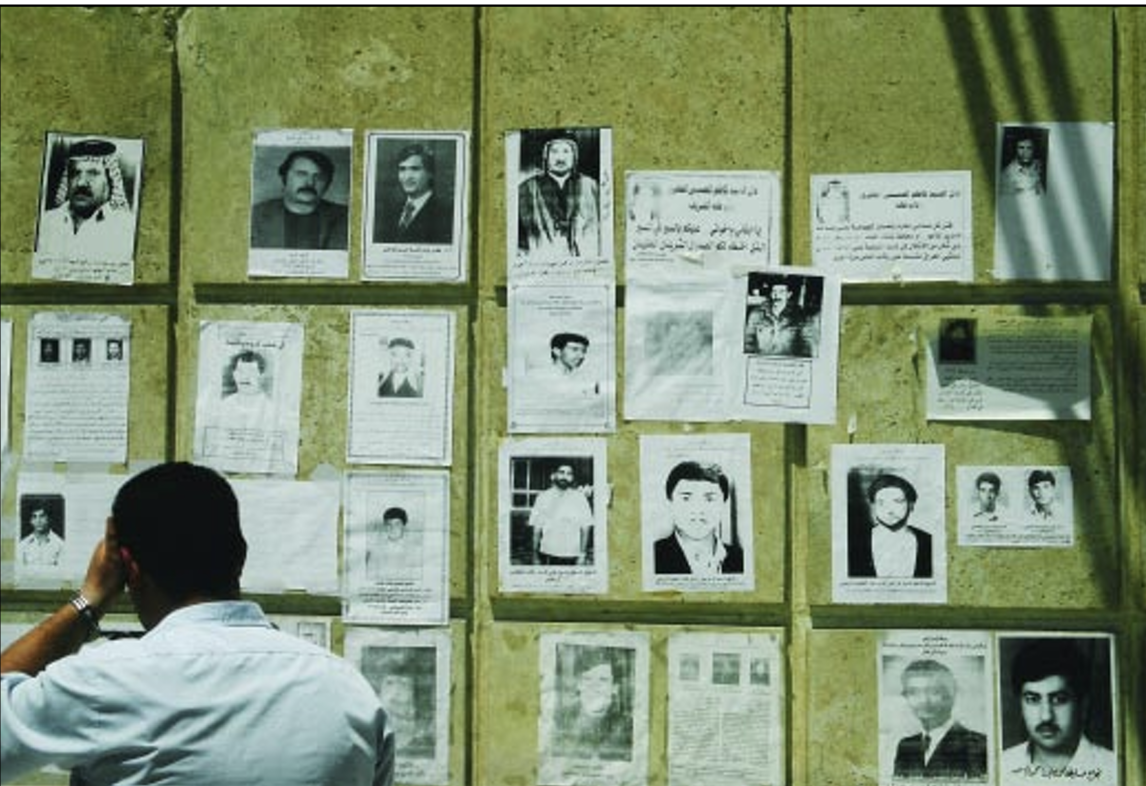Cambodia’s Search for Justice: Opportunities and Challenges for the Extraordinary Chambers in the Courts of Cambodia
Download PDFSummary
Over 1.5 million people died as a result of the Khmer Rouge’s rise to power and subsequent rule. The Extraordinary Chambers in the Courts of Cambodia (ECCC) represents an unprecedented opportunity in international jurisprudence for victims of crimes against humanity and genocide to participate actively in the trial of surviving leaders of the Khmer Rouge regime. International observers and many Cambodians hope the trials will provide a measure of justice for the most serious crimes committed by the Khmer Rouge from 1975 to 1979. However, the Tribunal’s evolution and structure pose numerous challenges to the administration of justice. This paper reviews the development of the tribunal and identifies some of the barriers that must be overcome if the ECCC will achieve its mission.

